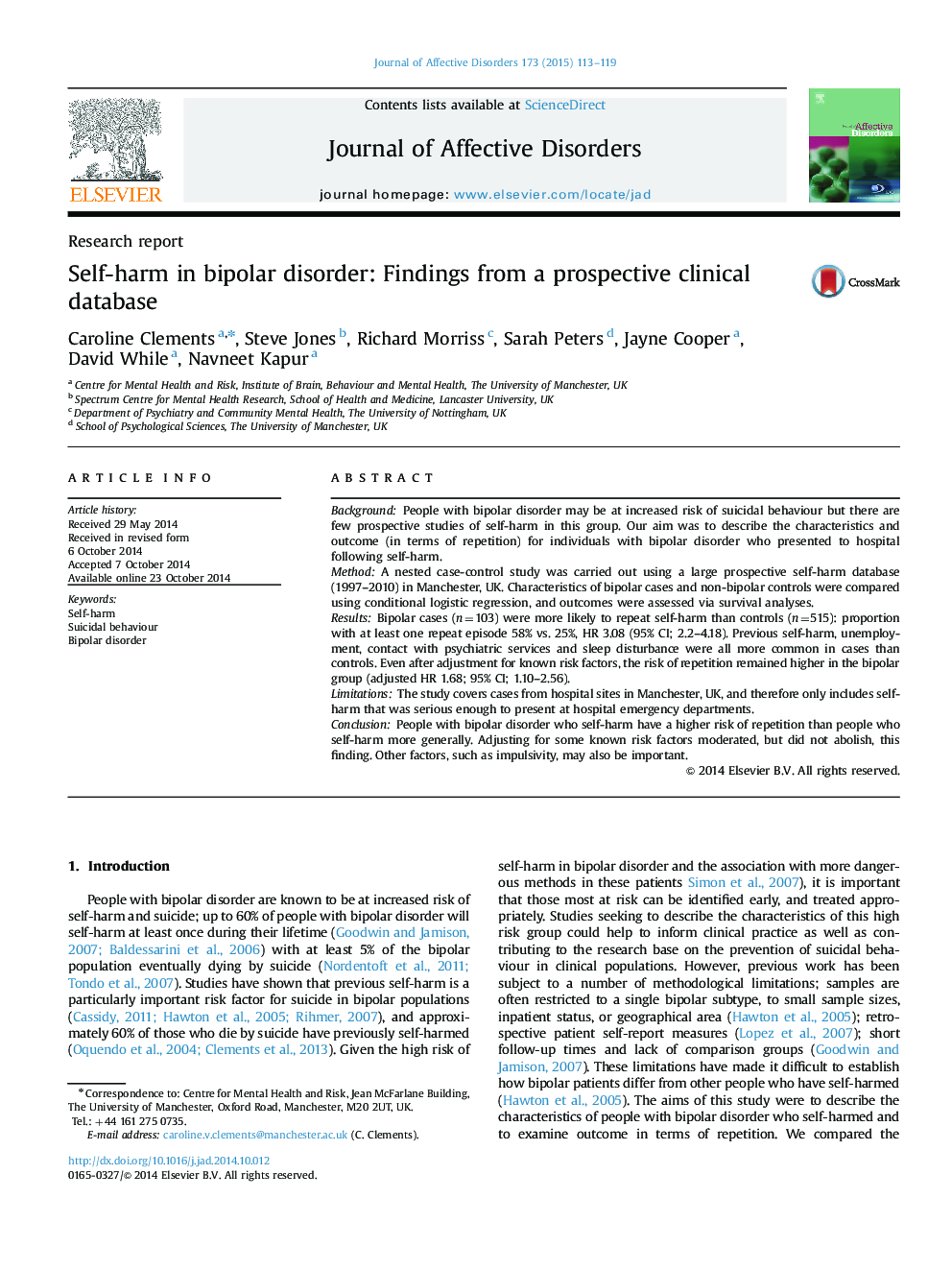| Article ID | Journal | Published Year | Pages | File Type |
|---|---|---|---|---|
| 6231853 | Journal of Affective Disorders | 2015 | 7 Pages |
BackgroundPeople with bipolar disorder may be at increased risk of suicidal behaviour but there are few prospective studies of self-harm in this group. Our aim was to describe the characteristics and outcome (in terms of repetition) for individuals with bipolar disorder who presented to hospital following self-harm.MethodA nested case-control study was carried out using a large prospective self-harm database (1997-2010) in Manchester, UK. Characteristics of bipolar cases and non-bipolar controls were compared using conditional logistic regression, and outcomes were assessed via survival analyses.ResultsBipolar cases (n=103) were more likely to repeat self-harm than controls (n=515): proportion with at least one repeat episode 58% vs. 25%, HR 3.08 (95% CI; 2.2-4.18). Previous self-harm, unemployment, contact with psychiatric services and sleep disturbance were all more common in cases than controls. Even after adjustment for known risk factors, the risk of repetition remained higher in the bipolar group (adjusted HR 1.68; 95% CI; 1.10-2.56).LimitationsThe study covers cases from hospital sites in Manchester, UK, and therefore only includes self-harm that was serious enough to present at hospital emergency departments.ConclusionPeople with bipolar disorder who self-harm have a higher risk of repetition than people who self-harm more generally. Adjusting for some known risk factors moderated, but did not abolish, this finding. Other factors, such as impulsivity, may also be important.
